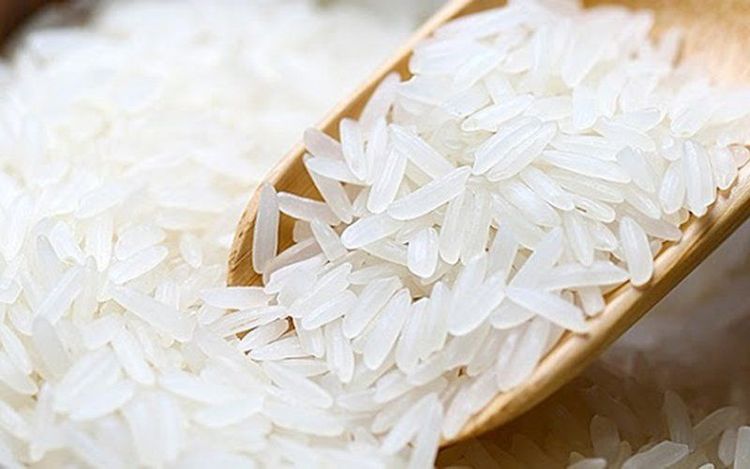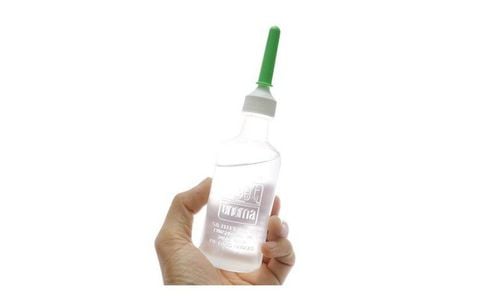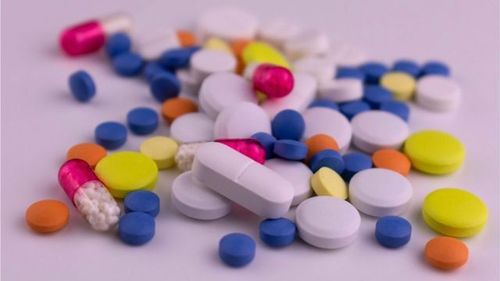This is an automatically translated article.
Malnutrition in children is one of the common causes of malnutrition and seriously affects the comprehensive development of children. So what to do in the case of poor nutritional absorption?1. Learn about nutritional malabsorption in children
When we give children healthy foods, the body automatically absorbs nutrients and vitamins from them. However, in children with malabsorption of nutrients, even though they still eat normally, their digestive system cannot absorb the nutrients in food.This is a digestive problem that is not uncommon and greatly affects the health of children. Especially in infants with poor absorption of nutrients, the child's body will fall into a state of deficiency of some important nutrients to support the body's development.
MORE: Malabsorption syndrome and digestive disorders

Trẻ kém hấp thu dinh dưỡng chính là một trong những nguyên nhân phổ biến gây nên tình trạng suy dinh dưỡng
2. Causes of poor nutritional absorption by children
There are many reasons why children are poorly malnourished. Some specific causes can be mentioned such as:Digestive system is not yet complete: in the first stage of life, the baby's digestive system cannot fully develop, therefore, the immunity is very weak, so it is easy to suffer from gastrointestinal disorders. The child's diet is not reasonable or appropriate for the age, for example, the family lets the child eat solid foods too early or on the wrong timetable. These problems in the long run will overload the child's digestive system, which directly affects the digestive function and absorption of nutrients. Intestinal dysbiosis: Intestinal dysbiosis is a condition in which the intestinal microflora becomes unbalanced. This condition is also the cause of disrupting and reducing the efficiency of the absorption of nutrients in children. In addition, lactose intolerance is also a cause for children to have difficulty absorbing nutrients.
3. Symptoms of poor absorption of nutrients
Children with poor nutritional absorption, if prolonged, affect their physical and intellectual development. In particular, the weakened immune system of children easily makes them susceptible to infectious diseases. Therefore, families need to know the early signs of poor nutrient absorption in children to promptly handle and quickly improve their illness:Children have abdominal pain, nausea and vomiting; Occurrence of diarrhea or watery stools (with a large amount); Weak resistance, children susceptible to infections; Signs of weight loss or very slow weight gain; The skin is dry, easy to bruise even with a light touch; Mood swings, fussy and irritable. In children who are absorbing nutrients, chronic (or ongoing) diarrhea is a very common symptom. Therefore, parents should take the child to see a doctor if the child has the above symptoms to promptly handle and give necessary treatment measures.
SEE ALSO: Understanding intestinal malabsorption syndrome

Trẻ có biểu hiện đau bụng, buồn nôn và ói mửa là dấu hiệu trẻ kém hấp thu chất dinh dưỡng
4. What should children with malabsorption eat?
Malnutrition in children has a great influence on physical development. Therefore, when children show signs of malabsorption, parents should supplement the following foods:4.1. Protein-rich foods (especially animal-derived protein) Milk: It is best for children to be breastfed, if in case it is not possible or the mother does not have enough milk, then breast milk should be given to the child. powdered formula with high energy content for the purpose of ensuring energy as well as nutritional composition. Eggs: This is a very nutritious and good food for children because eggs contain a lot of protein, fat, mineral salts and vitamins. The protein in eggs carries all the essential amino acids in a balanced ratio, so the baby's body can easily absorb it. In terms of nutritional value, egg yolk is rich in protein, fat, mineral salts and vitamins, so parents should give priority to children eating egg yolks. Meat: With high nutritional content, meat is a very suitable food for children with poor nutritional absorption. When the child is over 1 year old, the family can use lean shoulder and butt meat in the diet to increase energy for the child. Fish, shrimp, crab: In addition to the above foods, seafood are also foods that parents should strengthen for their children, because they contain more protein, which is easier to digest than meat protein. In addition, this food group also contains a lot of calcium and phosphorus, which is very good in preventing rickets in children. 4.2. Fatty foods In addition to protein, fat is also an important source of energy to be included in each child's meal. With the same amount, fat will provide twice as much energy for children as protein and starch. In addition, fat-soluble vitamins are also absorbed and provide essential saturated fatty acids. Therefore, parents need to ensure that children eat enough oil and fat to provide enough energy for the child's age. In addition, parents should also note that children should eat both animal fat (especially chicken fat) and vegetable oil, because they will provide unsaturated fatty acids very good for the absorption of children. , as well as the saturated fatty acids needed for metabolism in the body.
4.3. Foods rich in carbohydrates Rice and noodles are very rich in carbohydrates. With a large amount in the diet, it will play a very important role in providing energy for children. In addition, families need to pay attention to children drinking enough water, eating enough fresh vegetables and fruits to provide enough fiber, necessary vitamins and trace elements.

Gạo và mì là những thực phẩm rất giàu glucid
5. Other side solutions
To answer the question "What should children do with poor absorption?" In addition to giving children a nutritious diet, parents also need to:Create a habit of personal hygiene and clean body hygiene: Children need to be hygienic, wash hands and feet before eating and after going to the toilet, at the same time have a habit of cleaning your body and brushing your teeth every day. With nursing babies, the mother needs to clean her hands, feet and breasts before breastfeeding. Keeping children's living environment always clean and cool; Improve intestinal microflora and supplement digestive enzymes; Enhancing children's resistance with colostrum combined with immune alpha to prevent malabsorption caused by diseases or infections; Increase the baby's movement to increase the contraction of the intestines, which is helpful in increasing the child's digestive ability; Periodic deworming for children over 24 months old. Malnutrition in children is not a dangerous disease, but it should be treated properly and timely to avoid affecting the development of children. In the case of children showing signs of nutritional malabsorption, to determine the exact cause as well as the degree of malabsorption in the child, parents should take the child to a reputable medical facility to receive examination and treatment. The doctor will evaluate the condition and give a reasonable and effective treatment plan. In the case of children with prolonged anorexia, malabsorption, and growth retardation, parents should supplement children with supportive products containing lysine, essential micro-minerals and vitamins such as zinc, chromium, selenium, and B vitamins. help meet the nutritional needs of children. At the same time, these essential vitamins also support digestion, enhance nutrient absorption, help improve anorexia, and help children eat well. Parents can simultaneously apply dietary supplements and functional foods derived from nature for easy absorption. The most important thing is that improving your baby's symptoms often takes a long time. Combining many types of functional foods at the same time or changing many types in a short time can make the baby's digestive system unable to adapt and completely not good. Therefore, parents must be really patient with their children and regularly visit the website vimec.com to update useful baby care information.













